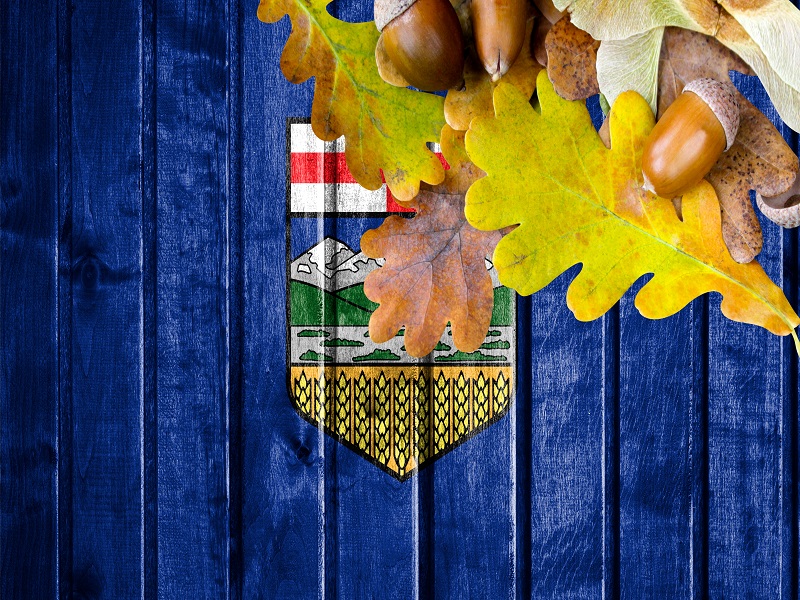
Federal Finance Minister Chrystia Freeland says if Alberta were to quit the Canada Pension Plan it would require a “complex and multi-year process” of negotiating international social security agreements to deal with contributors who work abroad.
Freeland said Friday that would be among the steps the Alberta and federal governments would have to take if the province were to withdraw from the federal retirement plan and set up its own. Her remarks followed a virtual meeting with provincial finance ministers, in which she said they discussed the consequences of Alberta going it alone.
“Of course Alberta has the right to withdraw,” she told reporters. “But Alberta’s choice about [the CPP] also implicates every single Canadian.”
Freeland, who called herself a “proud daughter of Alberta,” said she’s hearing from Albertans concerned about the idea and is asking the chief actuary to “provide an estimate of the asset transfer,” based on a “reasonable interpretation of the provisions in [the CPP] legislation.”
Read: Finance ministers to meet on Alberta’s proposal to leave Canada Pension Plan
Following the meeting, Alberta Finance Minister Nate Horner said he was encouraged to hear Ottawa would be providing an actuarial analysis. “We’ve been asking for this for several weeks,” he said in a statement. “To be clear, Alberta is committed to making sure that any potential creation of an Alberta Pension Plan will not leave our fellow Canadians without a stable pension and its associated benefits.”
On the issue of negotiating international social security agreements, Freeland told reporters that if Alberta launched its own program it would need to “ensure similar treatment of contributors who spend part of their careers abroad.” Quebec has negotiated its own such agreements with 39 countries, while Canada has done the same with 60.
The Alberta government argues its workers have contributed an oversized share to the national fund and would be in line for big savings and payouts if it were to leave the CPP. Alberta Premier Danielle Smith had planned to hold a possible referendum on leaving the CPP in 2025, but now says she won’t go ahead with such a vote until governments or the courts deliver a hard number on how much Alberta would get if it leaves.
New Brunswick Premier Blaine Higgs said he understands why Smith is proposing to pull her province out of the CPP. “I don’t feel Alberta is leaving Canada,” he said outside the legislature in Fredericton. “I think that Canada, in many ways, has left Alberta.”
Read: Alberta deserves more than half CPP assets if it exits program: report
Higgs said, as the premier of a Maritime province that receives federal equalization payments, it’s worth noting Alberta has been a major contributor to those funds. He also questioned why federal policies are “shutting down [Alberta’s] resource revenues at a time when they’re trying to reconfigure their economy.”
He didn’t elaborate but said Alberta’s bid to leave the CPP represents a “shot across the bow” and “a reality check.” However, the New Brunswick premier said he didn’t agree with Smith’s approach. “If Alberta came out of the CPP funding formula, it would be a major problem for Canadians across the country. I don’t think that’s Alberta’s intention.”
Last month, federal Conservative Leader Pierre Poilievre encouraged Albertans to stay in the federal pension plan. But he blamed Prime Minister Justin Trudeau for creating the conditions, through measures such as carbon pricing, that would push the province to consider other options.
Read: Trudeau chides Smith for Alberta pension-exit debate, promises to defend stability of CPP
Nova Scotia’s Finance Minister Allan MacMaster, who chairs the council of provincial and territorial finance ministers, told reporters that every province expressed how much they care about the CPP during the meeting. He said he believes the pension plan is better with Alberta in it. “I don’t want to cause concern for people. I want people to know that there’s a strong consensus around the country about the importance of [the CPP] and we all want to work together to keep it the way it is.”
Ontario Finance Minister Peter Bethlenfalvy called unity a strength of the CPP. “In a period of economic uncertainty, no Ontarian or Canadian should have to worry about the security of their retirement savings. Unity is a strength of the CPP and it is a strength of our country. But unity requires fairness.”
During an unrelated news conference in Vancouver, British Columbia Premier David Eby said the main concern for B.C. residents and Canadians is that the pension plan will be there for them. “It’s secure, it’s funded, it allows you to retire anywhere in Canada, [as] many Albertans know who are living in British Columbia right now — and it works.”
With files from Allison Jones in Toronto, Dirk Meissner in Victoria and Michael MacDonald and Keith Doucette in Halifax.
